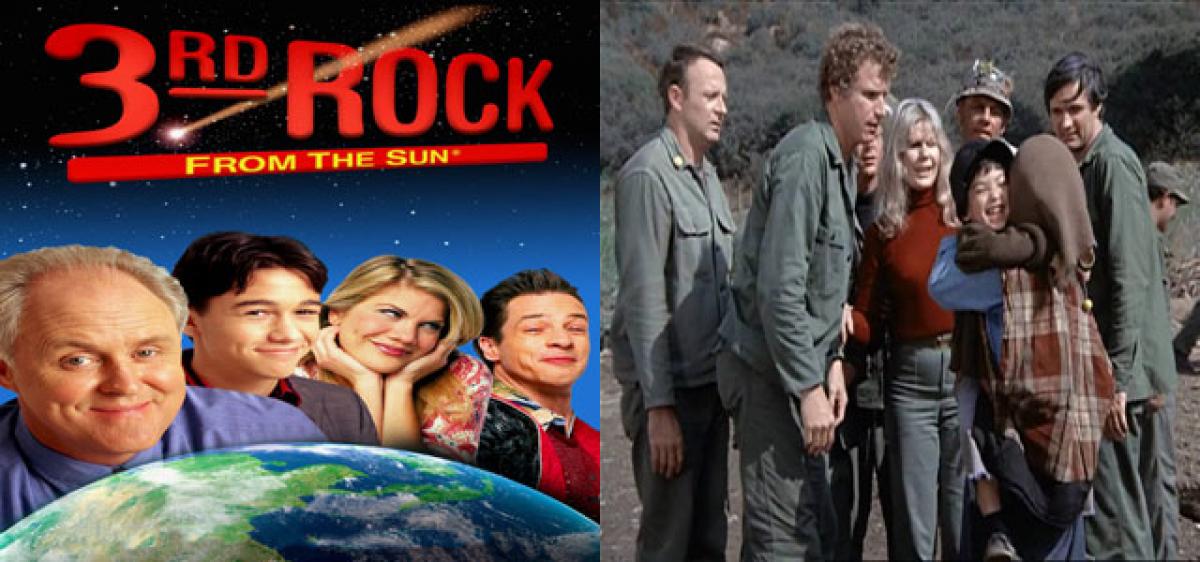TV shows needed as books too

The egg or the chicken paradox doesn\'t seem difficult to answer in its literary version – the printed word undoubtedly predates the moving image. Many much-loved books, across genres, have become acclaimed films or TV shows – with varying degrees of fidelity. Unfortunately, the reverse, though not unknown, does not happen as often.
While there have been many books or stories that have become popular shows, those that have gone on to become books are not many
The egg or the chicken paradox doesn't seem difficult to answer in its literary version – the printed word undoubtedly predates the moving image. Many much-loved books, across genres, have become acclaimed films or TV shows – with varying degrees of fidelity. Unfortunately, the reverse, though not unknown, does not happen as often.
Even in terms of the small screen, while there have been many books or stories that have become popular shows, those that have gone on to become books (or book series) are not many – despite the success of, for example, ‘Star Trek’ (in its various iterations), ‘Yes Minister/Prime Minister’, ‘Dynasty’, ‘Dallas’, or ‘The X-Files’.
But there are many more popular, path-breaking, and even prescient TV serials that need a new platform for they have lessons to teach us even now – and especially now. Take half-a-dozen shows, from the 1970s to the late 1990s, about war, police violence, manipulative politics, the news business, or even human society as seen by outsiders.
‘M*A*S*H 4077’ (1972-83), created by Larry Gelbart, is a slight anomaly. Originally a book about the droll experiences of an American combat medic and his colleagues in the Korean War, it was turned into a hit film, which, in turn, inspired the iconic TV series with its ensemble cast.
Its subtext was a critique of the ongoing Vietnam War, but more generally the futility and absurdity of conflict – and the resilience of the human spirit, if not body. With its mood shifting from silly to sombre or vice versa, the quirky characters, their escapades and some spirited dialogue, it enabled the message to be more effective.
‘Allo Allo’ (1982-92), created by David Croft and Jeremy Lloyd, was not only a parody of a contemporary show about World War II resistance activities but also of some stereotypes of the conflict, as well as various European nationalities.
Set in a small French town, it has as its hero a middle-aged cafe proprietor (but still somehow irresistible to women). Determined women resistance operatives (both Gaullist and communist), venal German officers, a British secret agent masquerading as a French policeman despite his mangled pronunciation and the like round out the cast.
While powered by visual gags, it is also driven by its farcical situations and dialogue (including in ridiculous accents) that could come out well in print.
‘Sledge Hammer’ (1986-88), created by Alan Spencer, is a satirical caricature of "over-the top" police officers like Clint Eastwood's ‘Dirty Harry’ carried to absurd levels (though some recent actions of American policemen would make you wonder).
The eponymous violent, insensitive and chauvinistic hero (played superbly by David Rasche), who sleeps, showers and even talks to his .44 Magnum Smith & Wesson revolver (referring to it as "her"), does however get the perpetrator. This may be through sheer luck, brute force (levelling a building with a bazooka to get a sniper), or rather, the aid of his more intelligent and sophisticated and restrained partner Detective Doreau (Anne-Marie Martin).
With their frequent sparring – asked by her if he thinks all women should be barefoot and pregnant, he says he encourages women to wear shoes, or telling her "That's what I like about you Doreau, you think like a man", his relations with his boss, Captain Trunk, who is perpetually ticking him off from incompetence or destructiveness – it would also make a compelling read.
‘The New Statesman’ (1987-94) was written by Laurence Marks and Maurice Gran for Rik Mayall, who starred as the greedy, dishonest, lecherous, scheming ultra-right-wing Conservative backbencher MP Alan B'Stard, who can frequently resort to seduction, blackmail and murder to fulfill his ambitions.
A satire on the self-centred and grasping new money Thatcherites, it not only skewed British politics (including how New Labour arose) but also neo-Nazis, Robert Maxwell and the country's love-hate relationship with the EU (now resolved), or a wider scale, what lengths some people can go for money and/or power. This could supplement the newspaper.
Set within the office newsroom of Globelink news, freshly acquired by a billionaire businessman, ‘Drop the Dead Donkey’ (1990-98) is a typical British look about the media and media business. Apart from taking on politicians of all hues (a number of real ones including Neil Kinnock made guest appearances, the show, created by Andy Hamilton and Guy Jenkin, also deals with egos of journalists and their antics in the field, the creeping trend towards tabloidisation, commercialisation and corporatisation of news, and the wicked, black banter between journalists, who are exposed to a lot of bad news first hand on a daily basis.
And finally, ‘3rd Rock from the Sun’ (1996-2001) about a group of extra-terrestrials living in an American Midwest city as part of their survey to observe behaviour of the inhabitants of "an insignificant planet" offers a unique look at American life and social norms.
We can only hope the copyright holders will soon realise the potential of giving these examples of inspired creativity a new lease of life, in a new form.














